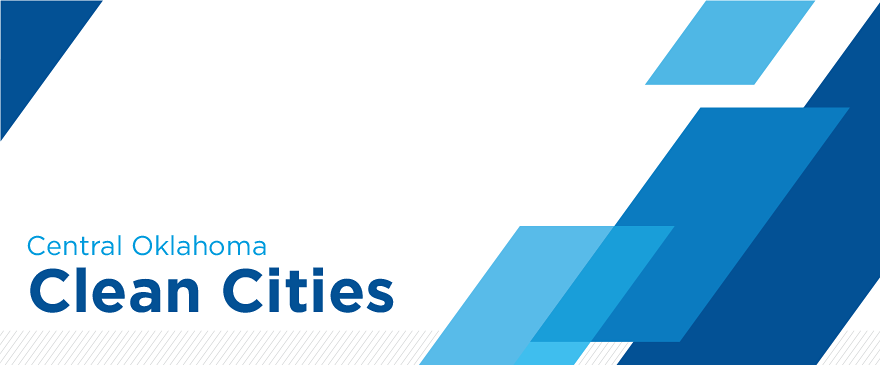
CENTRAL OKLAHOMA CLEAN CITIES COALITION RECEIVES SPECIAL RECOGNITION
OKLAHOMA CITY – On August 11, ACOG’s Central Oklahoma Clean Cities Coalition (COKCC) received two awards during the virtual U.S. Department of Energy Clean Cities National Workshop.
POWERING UP: ELECTRIFYING OKLAHOMA
COKCC’s first award was in partnership with INCOG’s Tulsa Area Clean Cities Coalition and various stakeholders. This network’s foundational work lead to Oklahoma recently achieving the #1 status in the country for EV fast charging stations and being named the #1 state for EV ownership according to MYEV.com.
As a culmination of four years of groundwork, this partnership has accomplished:
- Formation of the Oklahoma Electric Vehicle Coalition (OEVC) (2016)
- Oklahoma Department of Transportation, INCOG, & ACOG submitting ‘Oklahoma: America’s Alternative Fuels Crossroads’ Federal Highway Administration (FHWA) Alternative Fuel Corridor nomination (2016)
- OEVC submitting Electrify Oklahoma proposal for Electrify America (VW) investment in Oklahoma infrastructure – resulting in four charging stations (2017)
- Leading efforts to utilize 15% of state VW settlement funding for public charging
- Partnering with stakeholders to defend and extend state alternative fuel tax credits that contributed to significant public-private investment in charging network
IDLE REDUCTION
COKCC’s second award was in recognition for the greatest percentage improvement in idle reduction fuel savings by a DOE designated coalition. COKCC fleet stakeholders reported 216,000 gallons were saved by idle reduction in 2019.
“The Central Oklahoma Clean Cities Coalition is excited to receive these awards and continue to be proud to work with our fellow Clean Cities Coalitions and invested stakeholders to give Oklahomans access to alternative fuels and fuel-saving technologies,” Eric Pollard, ACOG Clean Cities Coordinator said.
ACOG’s Central Oklahoma Clean Cities Coalition is one of nearly 100 local coalitions working in communities across the country to implement alternative fuels, fuel-saving technologies and practices, and new mobility choices. The coalition is comprised of businesses, fuel providers, vehicle fleets, state and local government agencies, and community organizations. Visit the COKCC web page for more information.